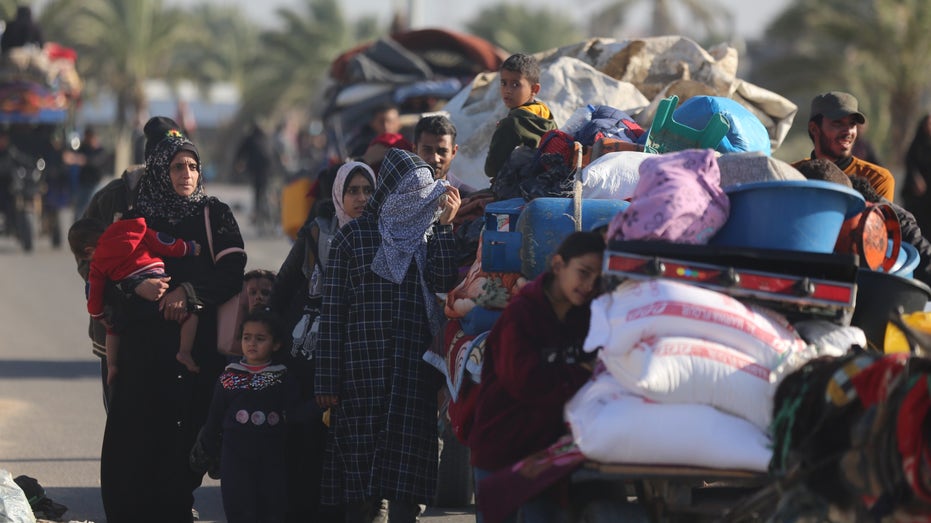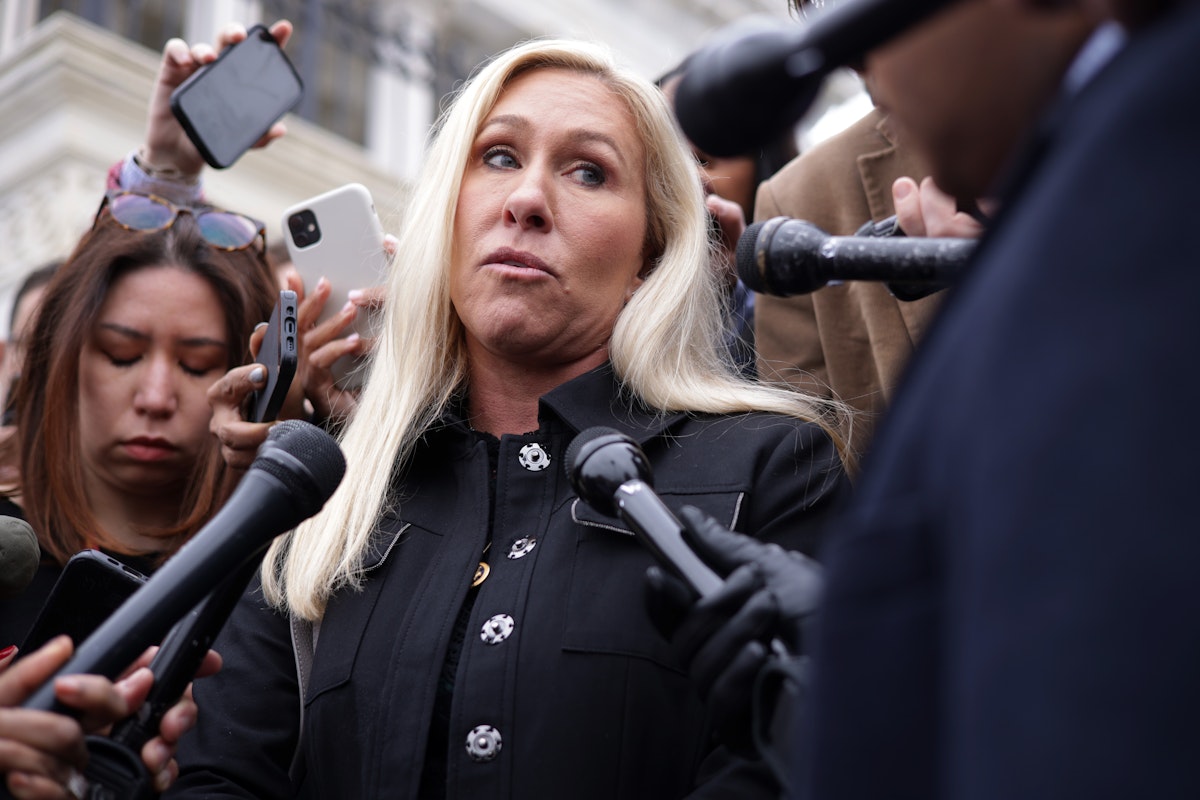World, UN signal no exit for civilians caught up in Gaza war: 'Politically toxic'
Millions of refugees from other conflicts have been resettled both around the globe, but offering Palestinians from Gaza an escape route is a thorny issue.

JERUSALEM — Over the last two years, since Russian forces invaded Ukraine, countries around the world have stepped up to help more than 6.5 million Ukrainian nationals flee the ongoing fighting.
In Syria, during 13 years of civil war, more than 12 million forcibly displaced civilians managed to leave the war-torn country, resettling in the region and beyond. In Afghanistan, where the radical Islamist Taliban group returned to power in 2021, more than 2.6 million people are now spread out across the globe.
The number of people in need of permanent refuge or at least some respite from the ongoing unrest continues to rise, according to data provided by the United Nations High Commission for Refugees (UNHCR).
And while countries around the world, including the U.S., continue to offer some of them a safe haven, there is no such escape for an estimated 1.9 million Palestinians who have been displaced and are suffering after nearly five months of war between Israel and the militant terror group Hamas.
The mere suggestion of relocating these desperate men, women and children, even temporarily, just a few miles beyond the borders of the Palestinian enclave has been sharply criticized and quickly dismissed.
BIDEN'S VISION FOR A PALESTINIAN STATE DOOMED, EXPERTS SAY: 'AN EXPLICIT RECOGNITION OF HAMAS'
On Oct. 7, thousands of Iranian-backed Hamas terrorists invaded southern Israel, murdering some 1,200 people and kidnapping 240, triggering an Israeli ground and air offensive that Hamas officials now say has killed more than 30,000 Gazans.
Since then, even countries sympathetic to the Palestinian cause, including nearby Arab nations, have refused to offer any sort of refuge to Gaza civilians.
In fact, Egypt, which borders the Strip to the south, has bolstered its border fence and deployed additional troops in the event Palestinians in search of respite and aid might attempt to enter its territory.
In Europe, Thomas Corbett Dillon, a U.S. based political commentator and former adviser to British Prime Minister Boris Johnson, told Fox News Digital the unwillingness to provide refuge to Gazan civilians was mainly due to past waves of refugees and migrants, "particularly Muslims who have failed to assimilate into our culture," he claimed.
"The European appetite for accepting refugees is over," Corbett Dillon said, adding that recent polling in the U.K. and across Europe "consistently shows the vast majority do not want any more refugees."
Corbett Dillon said the rejection of Palestinian refugees was less due to anti-Israel bias and more based on an overall rejection of opening doors to further immigration, including both those escaping war and those searching for better economic opportunities.
"Europe is struggling," he said. "Flooding the continent with people who will take more out of the system than they put in will only make the European crisis worse."
ISRAELI SECURITY EXPERTS SAY BIDEN’S PALESTINIAN STATE PUSH IS AN ’EXISTENTIAL THREAT’
For Arab states, the refusal to even discuss offering Palestinians from Gaza refuge is more personal.
"The Palestinian record in Arab countries has not been one of behaving guests, which has made Arab countries reluctant to take in any number of them from Gaza," explained Hussain Abdul-Hussain, a research fellow at the Foundation for Defense of Democracies.
He noted that Palestinians relocating to Arab countries in the past created friction and even sparked conflict, such as in Jordan, where Palestinian armed factions tried to topple the government, or Lebanon, where Palestinian terrorists drew Israel into multiple wars.
In addition, Abdul-Hussain said that for most Arab leaders, it would be "politically toxic" to urge Palestinians to leave the coastal enclave – even if it meant sparing their lives.
"No Arab official wants to be seen as the one who called on Palestinians to surrender their territory to the Israeli army," he said. "Prioritizing land over a good life for Palestinians has been at the heart of the problem and of Palestinian misery."
Abdul-Hussain said that while many countries and activists are calling for a cease-fire in Gaza, they hold back from calling for lasting peace between Israel and the Palestinians because they want "the Palestinians to prevail over Israel."
"Getting Palestinian civilians out of harm’s way weakens the position of Hamas and allows a quicker Israeli victory," he said. "The international community deals with the Israeli-Palestinian conflict along the lines of a theoretical framework that is devoid of reality, suggesting that the solution is territory, regardless of the interests of Palestinians."
ISRAELI PARLIAMENT BACKS NETANYAHU, REJECTS PUSH FOR 'UNILATERAL' RECOGNITION OF PALESTINIAN STATE
"The global model is inefficient and perpetuates the conflict, including making hereditary Palestinian ‘refugee’ status," said Abdul-Hussain, referring to UNRWA, the U.N. agency dedicated to servicing Palestinian refugees.
"On a per capita basis, Palestinian ‘refugees’ receive more global attention and resources than all other displaced persons on the planet," he said. "This global generosity has transformed humanitarian aid and agencies into an industry in which many have vested interests and want to see them continue."
Abdul-Hussain pointed out that the U.N., which works successfully to resettle refugees from all other conflicts, could have set up a temporary camp for Gazans in Sinai, the sparsely populated Egyptian territory.
"The U.N. seems unwilling to impose such a decision on Egypt," he said, noting that the international body has also held back from pressuring Hamas into surrendering, another way that could "spare further Gazan and Israeli deaths. …. The only pressure the U.N. decided to apply is on Israel. If this is not bias, I don’t know what is."
When asked by Fox News Digital if UNRWA had considered or discussed assisting Gazans who might want to leave the Strip, even temporarily for the duration of the fighting, Juliette Touma, the agency’s director of communications, responded sharply.
"We are not taking part in forced displacement," she said.
Israel has long said that UNRWA’s unprecedented approach to helping Palestinian refugees only serves to perpetuate the decades-old intractable conflict between the two. Instead of finding a permanent solution, the agency, which was initially established to provide shelter, welfare and health services to some 750,000 Palestinians displaced when Israel was created in 1948, continues to add refugees.
Today, it works with more than 5.9 million Palestinian refugees, descendants of the original group, in Jordan, Lebanon and Syria, as well as in the West Bank, east Jerusalem and the war-ravaged Gaza Strip.
With clear evidence that individuals employed by UNRWA participated in the Oct. 7 atrocities against Israel, Israeli officials have been ramping up their calls to disband the agency and create a new entity to help Palestinian refugees or have them fall under the broader UNHCR umbrella.
"The world has a legal obligation under international law to protect Palestinian civilians from forced displacement, indiscriminate harm, collective punishment and atrocity crimes," Jeremy Konyndyk, president of U.S.-based Refugees International, told Fox News Digital.
URBAN WARFARE EXPERT SAYS ISRAELI MILITARY TAKING UNPRECEDENTED STEPS TO PROTECT GAZA CIVILIANS
Konyndyk said few countries were likely to help Gazans leave without a credible guarantee they would be able to return to the Strip one day.
"No country in the region wants to be seen as facilitating ethnic cleansing, which would be the perception in many countries," Konyndyk said. "The goal of providing refuge for people fleeing extreme violence should not be permanent relocation but to provide temporary protection until conflict ends.
"There is very little trust that the Israeli government would eventually allow displaced Palestinians to return to Gaza, hence the lack of enthusiasm for taking in Palestinian refugees from this conflict."
A senior Israeli government official told Fox News Digital that claims of ethnic cleansing by Israel in Gaza were false and hypocritical.
"In every situation of war and conflict there are people who wish to leave," said the official, who spoke anonymously due to the sensitivity of the situation. "We saw it in Syria and in Ukraine, but only in Gaza the refugee organizations are unwilling to give people who want to move out the option."
"Palestinians are the only people in the world where relocation is not even considered," the official said. "I am sure there are many in Gaza who would be willing to start a new life somewhere else."
The official pointed to around 1,000 Gazans with relatives in Canada who were recently given safe haven there and are already starting a new life.
"More countries could offer that to the people in Gaza, but instead the majority will stay there, with the world stopping them from leaving," said the government official, who also rejected claims refugees from the Strip would not eventually be able to return once the war ends.
"Egypt is the one that controls the border with the Gaza Strip, not Israel, so no one will block them from returning home whenever they want to," the official said.



